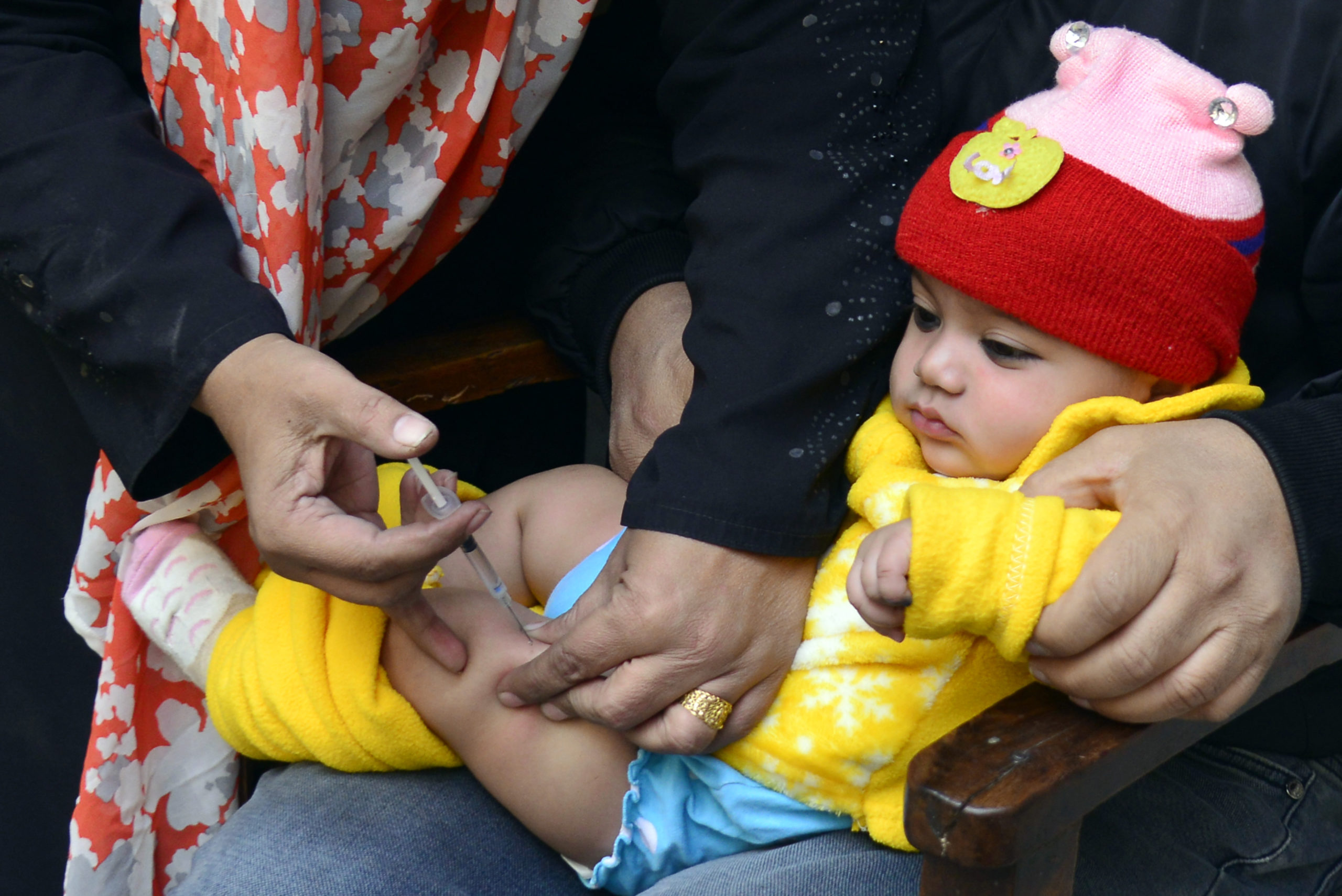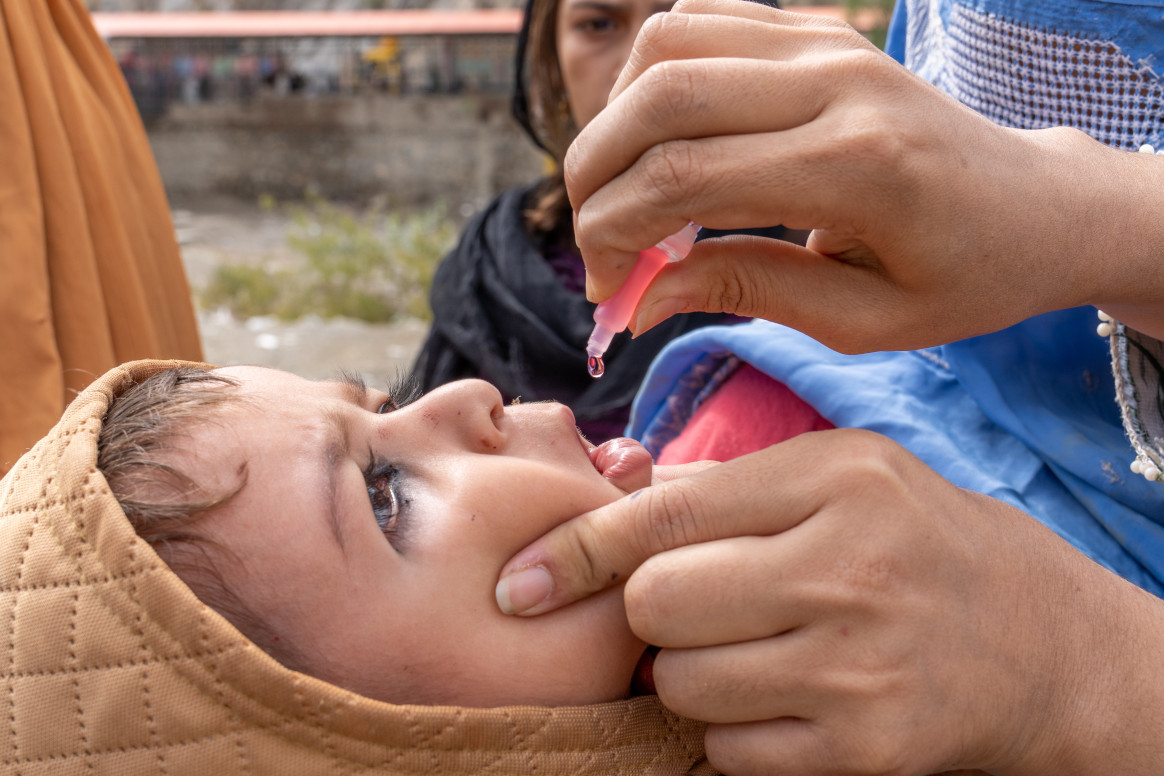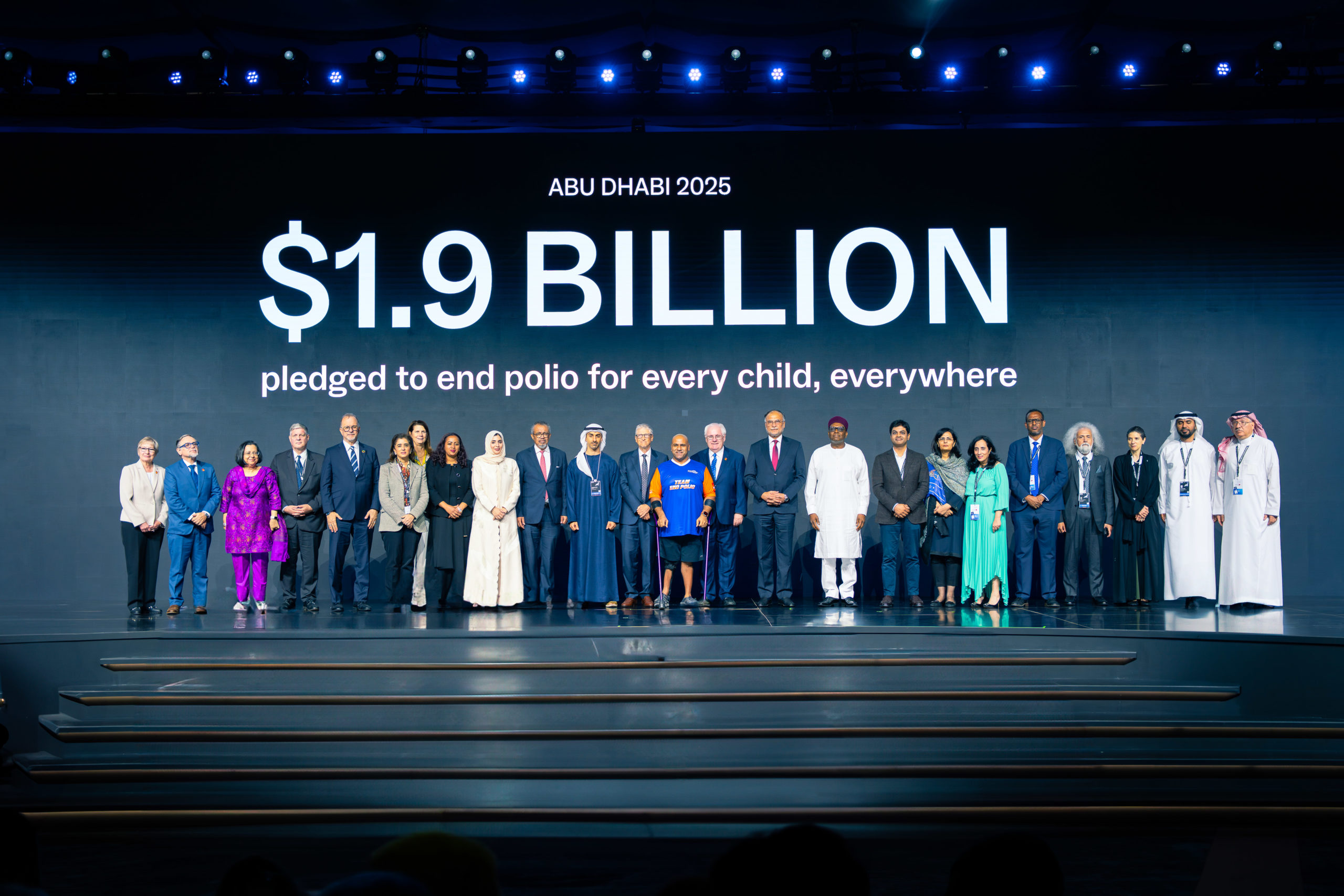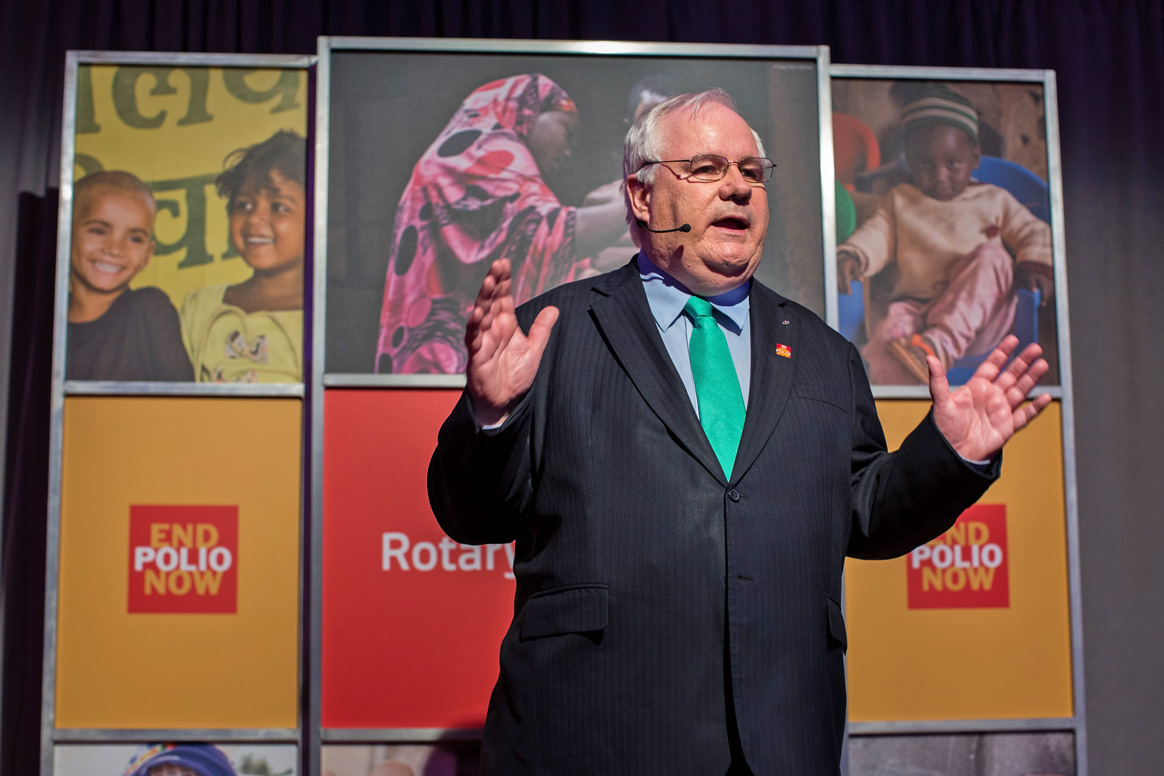
Following the April 2014 national polio campaign in Iraq, mobile phones helped the Iraqi Red Crescent Society determine routine and campaign polio immunisation coverage and identify pockets of unimmunized children. This innovative approach is helping to ensure that no areas are missed in the future.
“The use of mobile phone technologies is helping us to identify unvaccinated areas and provide accurate, transparent and timely data to develop an effective polio vaccination implementation plan to regain the polio free status”, said Dr Syed Jaffar Hussain, WHO Representative in Iraq, whose office supported the activity.
The Iraqi Red Crescent Society deployed 120 surveyors throughout the country to evaluate a total of 3,811 children under five years of age in more than 2,370 households in 19 different provinces. Trained Red Crescent volunteers, who live in the same community as the local population and speak the same language, played a key role in reaching the most inaccessible and marginalized communities.
Standard questions were used in the household survey. Data were entered electronically using GPS and uploaded in real-time to a central server for analysis and reporting.
Analysis of the data collected during the survey indicates that national polio immunisation coverage following the April 2014 campaign was high (91.5%), but varied by province and district. The data shows that routine immunisation coverage remains low and uneven with 21 districts (in nine provinces) reporting less than 80% documented routine polio immunisation.
With the help of mobile technology, the survey identified 199 population areas which did not receive polio vaccination during the recent campaign. Almost half of these population areas were located in the provinces of Baghdad-Karkh, Muthanna, Wassit and
Baghdad-Resafa. According to the survey, these missed populations also have low rates of routine immunization coverage.
The April 2014 immunization campaign in Iraq is part of the regional Middle East emergency response to the Syria polio outbreak. In Iraq, a case of wild poliovirus type 1was confirmed on 30 March 2014 in a six-month old boy from Baghdad Rasafa district. Genetic sequencing of the virus confirmed evidence of regional spread of the polio outbreak that first started in the Syrian Arab Republic in October 2013. Since October 2013, 25 polio vaccination campaigns were completed across the region, including five rounds in Syria and seven in Iraq, achieving high vaccination coverage.
Knowing where the remaining unvaccinated children are, and reaching them, will be the final step to stopping the outbreak of polio in the Middle East and protecting the region from this disease.



